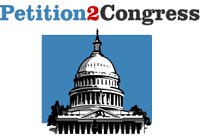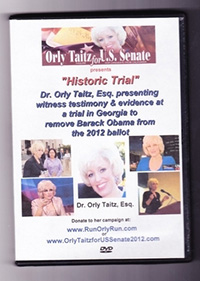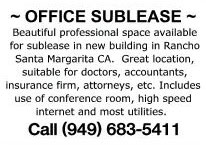Source
(Added Pub. L. 91–452, title IX, § 901(a),Oct. 15, 1970, 84 Stat. 941; amended Pub. L. 95–575, § 3(c),Nov. 2, 1978, 92 Stat. 2465; Pub. L. 95–598, title III, § 314(g),Nov. 6, 1978, 92 Stat. 2677; Pub. L. 98–473, title II, §§ 901(g), 1020,Oct. 12, 1984, 98 Stat. 2136, 2143; Pub. L. 98–547, title II, § 205,Oct. 25, 1984, 98 Stat. 2770; Pub. L. 99–570, title I, § 1365(b),Oct. 27, 1986, 100 Stat. 3207–35; Pub. L. 99–646, § 50(a),Nov. 10, 1986, 100 Stat. 3605; Pub. L. 100–690, title VII, §§ 7013, 7020(c), 7032, 7054, 7514,Nov. 18, 1988, 102 Stat. 4395, 4396, 4398, 4402, 4489; Pub. L. 101–73, title IX, § 968,Aug. 9, 1989, 103 Stat. 506; Pub. L. 101–647, title XXXV, § 3560,Nov. 29, 1990, 104 Stat. 4927; Pub. L. 103–322, title IX, § 90104, title XVI, § 160001(f), title XXXIII, § 330021(1),Sept. 13, 1994, 108 Stat. 1987, 2037, 2150; Pub. L. 103–394, title III, § 312(b),Oct. 22, 1994, 108 Stat. 4140; Pub. L. 104–132, title IV, § 433,Apr. 24, 1996, 110 Stat. 1274; Pub. L. 104–153, § 3,July 2, 1996, 110 Stat. 1386; Pub. L. 104–208, div. C, title II, § 202,Sept. 30, 1996, 110 Stat. 3009–565; Pub. L. 104–294, title VI, §§ 601(b)(3), (i)(3), 604(b)(6),Oct. 11, 1996, 110 Stat. 3499, 3501, 3506; Pub. L. 107–56, title VIII, § 813,Oct. 26, 2001, 115 Stat. 382; Pub. L. 107–273, div. B, title IV, § 4005(f)(1),Nov. 2, 2002, 116 Stat. 1813; Pub. L. 108–193, § 5(b),Dec. 19, 2003, 117 Stat. 2879; Pub. L. 108–458, title VI, § 6802(e),Dec. 17, 2004, 118 Stat. 3767; Pub. L. 109–164, title I, § 103(c),Jan. 10, 2006, 119 Stat. 3563; Pub. L. 109–177, title IV, § 403(a),Mar. 9, 2006, 120 Stat. 243.)
References in Text
Section 102 of the Controlled Substances Act, referred to in par. (1)(A), (D), is classified to section
802 of Title
21, Food and Drugs.
The Currency and Foreign Transactions Reporting Act, referred to in par. (1)(E), is title II of
Pub. L. 91–508, Oct. 26, 1970,
84 Stat. 1118, which was repealed and reenacted as subchapter
II of chapter
53 of Title
31, Money and Finance, by
Pub. L. 97–258, § 4(b),Sept. 13, 1982,
96 Stat. 1067, the first section of which enacted Title 31.
The Immigration and Nationality Act, referred to in par. (1)(F), is act June 27, 1952, ch. 477,
66 Stat. 163, as amended, which is classified principally to chapter 12 (§ 1101 et seq.) of Title 8, Aliens and Nationality. Sections 274, 277, and 278 of the Act are classified to sections
1324,
1327, and
1328 of Title
8, respectively. For complete classification of this Act to the Code, see Short Title note set out under section
1101 of Title
8 and Tables.
The effective date of this chapter, referred to in par. (5), is Oct. 15, 1970.
Amendments
2006—Par. (1)(B).
Pub. L. 109–177inserted “section
1960 (relating to illegal money transmitters),” before “sections
2251”.
2004—Par. (1)(B).
Pub. L. 108–458inserted “sections 175–178 (relating to biological weapons), sections 229–229F (relating to chemical weapons), section
831 (relating to nuclear materials),” before “(C) any act which is indictable under title 29”.
2003—Par. (1)(B).
Pub. L. 108–193, which directed amendment of par. (1)(A) of this section by substituting “sections 1581–1591 (relating to peonage, slavery, and trafficking in persons).” for “sections 1581–1588 (relating to peonage and slavery)”, was executed by making the substitution in par. (1)(B) to reflect the probable intent of Congress.
2001—Par. (1)(G).
Pub. L. 107–56, as amended by
Pub. L. 107–273, which directed addition of cl. (G) before period at end, was executed by making the addition before the semicolon at end to reflect the probable intent of Congress.
Pub. L. 104–208struck out “if the act indictable under section
1028 was committed for the purpose of financial gain” before “, section
1029”, inserted “section
1425 (relating to the procurement of citizenship or nationalization unlawfully), section
1426 (relating to the reproduction of naturalization or citizenship papers), section
1427 (relating to the sale of naturalization or citizenship papers),” after “section
1344 (relating to financial institution fraud),”, struck out “if the act indictable under section
1542 was committed for the purpose of financial gain” before “, section
1543”, “if the act indictable under section
1543 was committed for the purpose of financial gain” before “, section
1544”, “if the act indictable under section
1544 was committed for the purpose of financial gain” before “, section
1546”, and “if the act indictable under section
1546 was committed for the purpose of financial gain” before “, sections 1581–1588”.
Pub. L. 104–153inserted “, section
2318 (relating to trafficking in counterfeit labels for phonorecords, computer programs or computer program documentation or packaging and copies of motion pictures or other audiovisual works), section
2319 (relating to criminal infringement of a copyright), section
2319A (relating to unauthorized fixation of and trafficking in sound recordings and music videos of live musical performances), section
2320 (relating to trafficking in goods or services bearing counterfeit marks)” after “sections
2314 and
2315 (relating to interstate transportation of stolen property)”.
Pub. L. 104–132, § 433(1), (2), inserted “section
1028 (relating to fraud and related activity in connection with identification documents) if the act indictable under section
1028 was committed for the purpose of financial gain,” before “section
1029” and “section
1542 (relating to false statement in application and use of passport) if the act indictable under section
1542 was committed for the purpose of financial gain, section
1543 (relating to forgery or false use of passport) if the act indictable under section
1543 was committed for the purpose of financial gain, section
1544 (relating to misuse of passport) if the act indictable under section
1544 was committed for the purpose of financial gain, section
1546 (relating to fraud and misuse of visas, permits, and other documents) if the act indictable under section
1546 was committed for the purpose of financial gain, sections 1581–1588 (relating to peonage and slavery),” after “section
1513 (relating to retaliating against a witness, victim, or an informant),”.
Par. (1)(D).
Pub. L. 104–294, § 601(b)(3), substituted “section
157 of this title” for “section 157 of that title”.
Par. (1)(F).
Pub. L. 104–132, § 433(3), (4), which directed addition of cl. (F) before period at end, was executed by making the addition before the semicolon at end to reflect the probable intent of Congress.
1994—Par. (1)(A).
Pub. L. 103–322, § 330021(1), substituted “kidnapping” for “kidnaping”.
Pub. L. 103–322, § 90104, substituted “a controlled substance or listed chemical (as defined in section 102 of the Controlled Substances Act)” for “narcotic or other dangerous drugs”.
Par. (1)(D).
Pub. L. 103–394inserted “(except a case under section 157 of that title)” after “title 11”.
Pub. L. 103–322, § 90104, substituted “a controlled substance or listed chemical (as defined in section 102 of the Controlled Substances Act)” for “narcotic or other dangerous drugs”.
1990—Par. (1)(B).
Pub. L. 101–647substituted “section
1029 (relating to” for “section
1029 (relative to” and struck out “sections
2251 through
2252 (relating to sexual exploitation of children),” before “, section
1958”.
1989—Par. (1).
Pub. L. 101–73inserted “section
1344 (relating to financial institution fraud),” after “section
1343 (relating to wire fraud),”.
1988—Par. (1)(B).
Pub. L. 100–690, § 7514, inserted “sections
2251 through
2252 (relating to sexual exploitation of children),”.
Pub. L. 100–690, § 7054, inserted “, section
1029 (relative to fraud and related activity in connection with access devices)” and “, section
1958 (relating to use of interstate commerce facilities in the commission of murder-for-hire), sections 2251–2252 (relating to sexual exploitation of children)”.
Par. (10).
Pub. L. 100–690, § 7020(c), inserted “the Associate Attorney General of the United States,” after “Deputy Attorney General of the United States,”.
1986—Par. (1)(B).
Pub. L. 99–646, as amended by
Pub. L. 100–690, § 7013, inserted “section
1512 (relating to tampering with a witness, victim, or an informant), section
1513 (relating to retaliating against a witness, victim, or an informant),” after “section
1511 (relating to the obstruction of State or local law enforcement),”.
Pub. L. 99–570inserted “section
1956 (relating to the laundering of monetary instruments), section
1957 (relating to engaging in monetary transactions in property derived from specified unlawful activity),”.
1984—Par. (1)(A).
Pub. L. 98–473, § 1020(1), inserted “dealing in obscene matter,” after “extortion,”.
Par. (1)(B).
Pub. L. 98–547inserted “sections
2312 and
2313 (relating to interstate transportation of stolen motor vehicles),” and “section
2320 (relating to trafficking in certain motor vehicles or motor vehicle parts),”.
Pub. L. 98–473, § 1020(2), inserted “sections 1461–1465 (relating to obscene matter),”.
1978—Par. (1)(B).
Pub. L. 95–575inserted “sections 2341–2346 (relating to trafficking in contraband cigarettes),”.
Par. (1)(D).
Pub. L. 95–598substituted “fraud connected with a case under title 11” for “bankruptcy fraud”.
Effective Date of 2002 Amendment
Effective Date of 1996 Amendment
Amendment by section 604(b)(6) of
Pub. L. 104–294effective Sept. 13, 1994, see section 604(d) of
Pub. L. 104–294, set out as a note under section
13 of this title.
Effective Date of 1994 Amendment
Amendment by
Pub. L. 103–394effective Oct. 22, 1994, and not applicable with respect to cases commenced under Title 11, Bankruptcy, before Oct. 22, 1994, see section 702 of
Pub. L. 103–394, set out as a note under section
101 of Title
11.
Effective Date of 1978 Amendments
Amendment by
Pub. L. 95–598effective Oct. 1, 1979, see section 402(a) of
Pub. L. 95–598, set out as an Effective Date note preceding section
101 of Title
11, Bankruptcy.
Short Title of 1984 Amendment
Section 301 of chapter III (§§ 301–322) of title II of
Pub. L. 98–473provided that: “This title [probably means this chapter, enacting sections
1589,
1600,
1613a, and
1616 of Title
19, Customs Duties and sections
853,
854, and
970 of Title
21, Food and Drugs, amending section
1963 of this title and sections 1602, 1605, 1606, 1607, 1608, 1609, 1610, 1611, 1612, 1613, 1614, 1615, 1618, 1619, and 1644 ofTitle
19, sections 824, 848, and 881 of Title 21, and section
524 of Title
28, Judiciary and Judicial Procedure, and repealing section
7607 of Title
26, Internal Revenue Code] may be cited as the ‘Comprehensive Forfeiture Act of 1984’.”
Short Title of 1970 Amendment
Pub. L. 91–452, § 1,Oct. 15, 1970,
84 Stat. 922, provided in part: “That this Act [enacting this section, sections
841 to
848,
1511,
1623,
1955,
1962 to
1968,
3331 to
3334,
3503,
3504, 3575 to 3578, and
6001 to
6005 of this title, and section
1826 of Title
28, Judiciary and Judicial Procedure, amending sections
835,
1073,
1505,
1954,
2424,
2516,
2517,
3148,
3486, and
3500 of this title, sections
15,
87f,
135c,
499m, and
2115 of Title
7, Agriculture, section 25 of Title
11, Bankruptcy, section
1820 of Title
12, Banks and Banking, sections
49,
77v,
78u,
79r,
80a–41,
80b–9,
155,
717m,
1271, and
1714 of Title
15, Commerce and Trade, section
825f of Title
16, Conservation, section
1333 of Title
19, Customs Duties, section
373 of Title
21, Food and Drugs, section
161 of Title
29, Labor, section
506 of Title
33, Navigation and Navigable Waters, sections
405 and
2201 of Title
42, The Public Health and Welfare, sections
157 and
362 of Title
45, Railroads, section 1124 of former Title 46, Shipping, section
409 of Title
47, Telegraphs, Telephones, and Radio telegraphs, sections 9, 43, 46, 916, 1017, and 1484 of former Title 49, Transportation, section
792 of Title
50, War and National Defense, and sections 643a,
1152, 2026, and former section
2155 of Title
50, Appendix, repealing sections
837,
895,
1406, and
2514 of this title, sections
32 and
33 of Title
15; sections 4874 and 7493 of Title
26, Internal Revenue Code, section 827 of former Title
46, sections 47 and 48 of former Title 49, and sections
121 to
144 of Title
50, enacting provisions set out as notes under this section and sections
841,
1511,
1955, preceding 3331, preceding 3481, 3504, and 6001 of this title, and repealing provisions set out as a note under section
2510 of this title] may be cited as the ‘Organized Crime Control Act of 1970’.”
Pub. L. 91–452, title IX, § 901(a),Oct. 15, 1970,
84 Stat. 941, is popularly known as the “Racketeer Influenced and Corrupt Organizations Act”. See also Short Title note below.
Short Title
This chapter is popularly known as the “Racketeer Influenced and Corrupt Organizations Act”.
Savings Provision
Amendment by section 314 of
Pub. L. 95–598not to affect the application of chapter 9 (§ 151 et seq.), chapter 96 (§ 1961 et seq.), or section
2516,
3057, or
3284 of this title to any act of any person (1) committed before Oct. 1, 1979, or (2) committed after Oct. 1, 1979, in connection with a case commenced before such date, see section 403(d) of
Pub. L. 95–598, set out as a note preceding section
101 of Title
11, Bankruptcy.
Separability
Section 1301 of
Pub. L. 91–452provided that: “If the provisions of any part of this Act [see Short Title of 1970 Amendment note set out above] or the application thereof to any person or circumstances be held invalid, the provisions of the other parts and their application to other persons or circumstances shall not be affected thereby.”
Congressional Statement of Findings and Purpose
“The Congress finds that (1) organized crime in the United States is a highly sophisticated, diversified, and widespread activity that annually drains billions of dollars from America’s economy by unlawful conduct and the illegal use of force, fraud, and corruption; (2) organized crime derives a major portion of its power through money obtained from such illegal endeavors as syndicated gambling, loan sharking, the theft and fencing of property, the importation and distribution of narcotics and other dangerous drugs, and other forms of social exploitation; (3) this money and power are increasingly used to infiltrate and corrupt legitimate business and labor unions and to subvert and corrupt our democratic processes; (4) organized crime activities in the United States weaken the stability of the Nation’s economic system, harm innocent investors and competing organizations, interfere with free competition, seriously burden interstate and foreign commerce, threaten the domestic security, and undermine the general welfare of the Nation and its citizens; and (5) organized crime continues to grow because of defects in the evidence-gathering process of the law inhibiting the development of the legally admissible evidence necessary to bring criminal and other sanctions or remedies to bear on the unlawful activities of those engaged in organized crime and because the sanctions and remedies available to the Government are unnecessarily limited in scope and impact.
“It is the purpose of this Act [see Short Title of 1970 Amendment note above] to seek the eradication of organized crime in the United States by strengthening the legal tools in the evidence-gathering process, by establishing new penal prohibitions, and by providing enhanced sanctions and new remedies to deal with the unlawful activities of those engaged in organized crime.”
Liberal Construction of Provisions; Supersedure of Federal or State Laws; Authority of Attorneys Representing United States
“(a) The provisions of this title [enacting this chapter and amending sections
1505,
2516, and
2517 of this title] shall be liberally construed to effectuate its remedial purposes.
“(b) Nothing in this title shall supersede any provision of Federal, State, or other law imposing criminal penalties or affording civil remedies in addition to those provided for in this title.
“(c) Nothing contained in this title shall impair the authority of any attorney representing the United States to—
“(1) lay before any grand jury impaneled by any district court of the United States any evidence concerning any alleged racketeering violation of law;
“(2) invoke the power of any such court to compel the production of any evidence before any such grand jury; or
“(3) institute any proceeding to enforce any order or process issued in execution of such power or to punish disobedience of any such order or process by any person.”
President’s Commission on Organized Crime; Taking of Testimony and Receipt of Evidence
Pub. L. 98–368, July 17, 1984,
98 Stat. 490, provided for the Commission established by Ex. Ord. No. 12435, formerly set out below, authority relating to taking of testimony, receipt of evidence, subpoena power, testimony of persons in custody, immunity, service of process, witness fees, access to other records and information, Federal protection for members and staff, closure of meetings, rules, and procedures, for the period of July 17, 1984, until the earlier of 2 years or the expiration of the Commission.
Executive Order No. 12435
Ex. Ord. No. 12435, July 28, 1983,
48 F.R.
34723, as amended Ex. Ord. No. 12507, Mar. 22, 1985,
50 F.R.
11835, which established and provided for the administration of the President’s Commission on Organized Crime, was revoked by Ex. Ord. No. 12610, Sept. 30, 1987,
52 F.R.
36901, formerly set out as a note under section 14 of the Federal Advisory Committee Act in the Appendix to Title 5, Government Organization and Employees.












 29839 Sta Margarita Pkwy,
29839 Sta Margarita Pkwy, 
 Videography by Barbara Rosenfeld
Videography by Barbara Rosenfeld 


January 31st, 2013 @ 2:27 pm
October 17th, 2016 @ 10:20 pm
My children were wanting a form some time ago and saw a business that has 6 million forms . If you are wanting it too , here’s https://goo.gl/tpFqmR